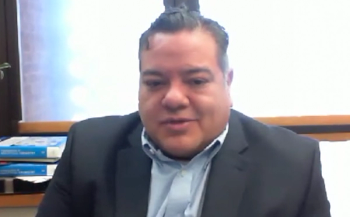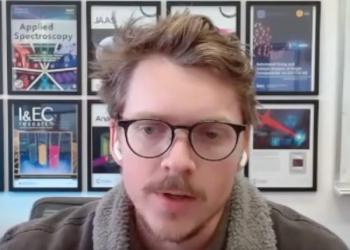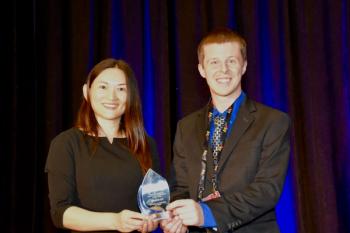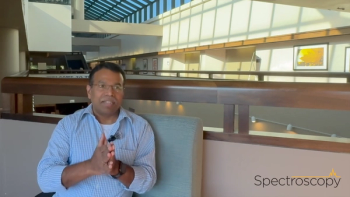
Peter R. Griffiths Receives Ellis R. Lippincott Award at 2023 SciX Conference
Peter Griffiths was honored for his unique achievements and significant contributions to the field of vibrational spectroscopy.
Peter R. Griffiths, University of Idaho (retired), was named the 2023 recipient of the
The Lippincott Award is presented to an individual who has made significant contributions to vibrational spectroscopy as judged by their influence on other scientists. Because innovation was a hallmark of Lippincott's work, this quality must also be demonstrated by candidates for the award. The award was established in 1975 to honor the unique contributions Ellis R. Lippincott made to the field of vibrational spectroscopy. It is jointly sponsored by Optica, the Coblentz Society, and the Society for Applied Spectroscopy (1).
Griffiths was born in England and spent the first 25 years of his life there. He received his doctorate in Physical Chemistry from Oxford University, UK, and spent two years doing postdoctoral research at the University of Maryland, under the supervision of Lippincott. After brief stints with Digilab and Sadtler Research Labs, he joined the faculty of Ohio University, reaching the rank of Distinguished Professor. He moved to the University of California, Riverside, USA, before accepting the chairmanship of the Chemistry Department of the University of Idaho, from which he retired in 2008 (4).
Griffiths’ principal research area has been analytical vibrational spectroscopy with particular emphasis on Fourier transform-infrared (FT-IR) spectroscopy. Among the topics that his research group has worked on are diffuse reflection spectroscopy, open-path atmospheric monitoring, and the interface of FT-IR spectrometers with various types of chromatographs (including gas, high-pressure liquid, and supercritical fluid). He has co-authored over 300 papers and has written, co-authored, or edited eleven books on these topics. He taught in a week-long course on the interpretation of infrared (IR) and Raman spectra for over 30 years and acted as a consultant to several companies and organizations (3).
In an interview with Spectroscopy Magazine, Griffiths said, “I believe that I am the only Lippincott Awardee to have worked in his laboratory, and I learned a great deal from my interaction with him. I first met him when I was a graduate student in ‘Tommy’ Thomson’s lab at Oxford. Tommy ran a conference on far-infrared spectroscopy in 1966 that was attended by all the “names” in IR spectroscopy, including Richard Lord and Ellis Lippincott. As is the case for many week-long conferences, Wednesday afternoon was free and my fellow ‘gopher,’ Roger Lake, and I were asked to play a game of croquet with Lord and Lippincott. One year later, Roger was a post-doc in Dick Lord’s lab at MIT and I was in a similar position in Ellis’s lab at the University of Maryland! Learning how a successful scientist operated by observation of Ellis Lippincott was critical to my career” (4).
References
- Optica, Ellis R. Lippincott Award.
https://www.optica.org/get_involved/awards_and_honors/awards/award_descriptions/ellislippincott/ (Accessed October 3, 2023). - SCIX Conference, SCIX 2023 Program.
https://scixconference.org/scix2023program/ (Accessed October 3, 2023). - Optica. 2023 Ellis R. Lippincott Award Winner.
https://www.optica.org/get_involved/awards_and_honors/awards/2023_award_winner_pressreleases/2023lippincottawardwinner/ (Accessed October 3, 2023). - Chasse, J. Measuring Fine Airborne Particles within Mining Environments: An Interview with 2023 Lippincott Award Winner Peter Griffiths. Spectroscopy 2023.
https://www.spectroscopyonline.com/view/measuring-fine-airborne-particles-within-mining-environments-an-interview-with-2023-lippincott-award-winner-peter-griffiths (Accessed October 3, 2023).
Newsletter
Get essential updates on the latest spectroscopy technologies, regulatory standards, and best practices—subscribe today to Spectroscopy.




